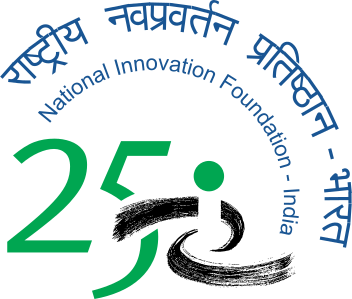News
Seventy one year old Amrutlal Agrawat is from Pikhor village in Junagarh, Gujarat. He lost his father at the tender age of 7 and remained a landless labourer for 15 long years. In 1965, he started making farming equipment. Someone from the Indian Institute of Management, Ahmedabad got to know about his work and got very impressed and got him associated with organisations like Society for Research and Initiative for Sustainable Technologies and Institutions (SRISTI)and the National Innovation Foundation to further develop his designs and receive patents. His prototype of a three-wheeled tiller has been adopted in the hilly terrains of Kenya with the initiative of USAID. Amrutlal Bhai says, "My first innovation came after finding blood and gall on the shoulder of a bullock. This led me in 1995 to make a non-hydraulic tilting bullock cart with dumping mechanism, for which I now hold a patent. I’ve a workshop with lathe-machine and grinders where I make things for the poor farmers who can’t afford high-end gadgets. Farmers come from faraway places." Till now, he has 15 equipment to his credit. He had also made a manual groundnut digger for hard ground condition. Amrutlal Agrawat was invited to Africa as well Paris to share his acumen.
Some Ideas usher in Technology
Amrutbhai is not the only one. The streak of innovation, the stroke of creativity and the stride of application gives rise to a viable technology. The fecund mind needs to be tapped and further attuned with a pragmatic zeal
Swapanil Talukdar was rather laggard to turn over the pages of a book. "While still in the 11th grade, I started devising a foot operated manual page-turning machine that could be used to turn the pages of a book without the use of the hands, useful to a physically-challenged person. My invention is based on a simple three step process based on the natural way of using the thumb, index and middle fingers to turn the pages of a book," says the inventor. Now Swapanil is pursuing electronic engineering and harping on its electronic version as well.

Across India, many males have voice that sound like that of a female.Well this is called puberphonia and you stand a chance to lower your pitch, claims Prashant Goyal. Around 5% of population has some form of speech impairment. Prashant Goyal is an electronic product engineer and his wife Soniya Gupta is a speech therapist. The couple ventured for rendering homebased speech therapy for both expressive and receptive problems.
Their device, Speak Fluent can check stammering and teach you to modulate your speech. Their equipment Speechifi is a digital speech trainer targeted at children with mild to moderate cases of autism, Attention Deficit Hyperactivity Disorder (ADHD), delayed speech and language (DSL) and even Down’s syndrome. It is also useful to people with cochlear implant or hearing-aid users who find it hard to streamline their speech. Their product was awarded at the Indo-US Konnect, 2015 in the Silicon Valley.
Ratul Nair and his team came up with Bempu, a hypothermia alert device for the newborn child to ensure kangaroo mother care when the temperature of a baby falls and needs to be held close to mother’s skin. Their initiative was supported by the Bill and Melinda gates foundation. Innovations are happening across India whose economy is based on agriculture. They cross-breed plants with the desired superior traits to beget the preferred genes in the progeny and thereby create an improved genetic pool - a germplasm bearing the desired traits. To herald ingenuity, several organisations like Society for Research and Initiative for Sustainable Technologies and Institutions (SRISTI) and National Innovative Foundation (NIF) have come up to provide fillip to the furtherance of innovative ideas to get technological translation. They take up long treks in the hinterland villages to explore innovation and bolster technological support to them Recently the annual Festival of Innovations at the Rashtrapati Bhavan showcased innovations that came from the literate and the illiterate alike. For example, rowing apples on the plains at 40 – 46 degree Celsius. Hariman Sharma who hails from Bilaspur district in Himachal Pradesh came across a flowering apple tree in his backyard. "It was not a cultivated plant but must have grown from some fallen seed. I was amused and thrilled to find apple flowers in plain area. I tried grafting it and I was successful. The journey began. In 2006, I started a nursery, distributing such saplings to people after it was inspected and ratified by several research centres. Six thousand farmers have been benefitted so far across 29 states besides several institutions." Naturally this has benefitted farmers across the country, Chaudhry with NIF says, "In the usual trend, apples get ready between July and September, but Hariman’s variety yield apples by June and is resistant to the common scab disease.We’ve checked such cultivar from Karnataka. It’s quite the same."






